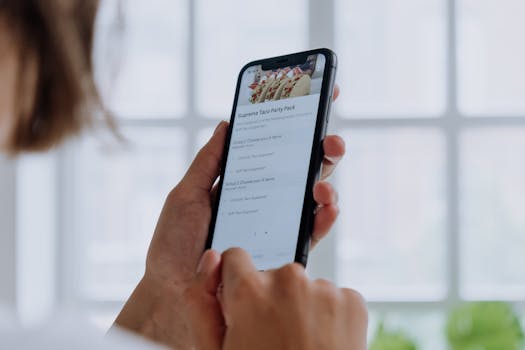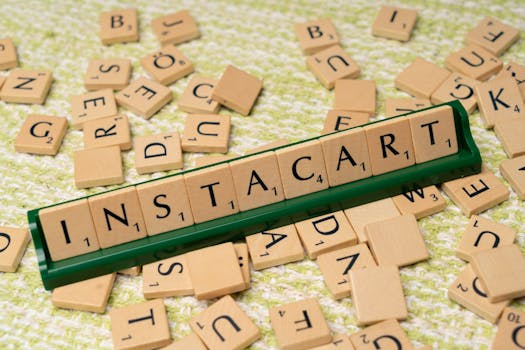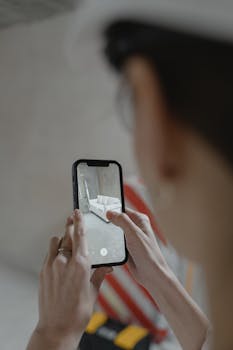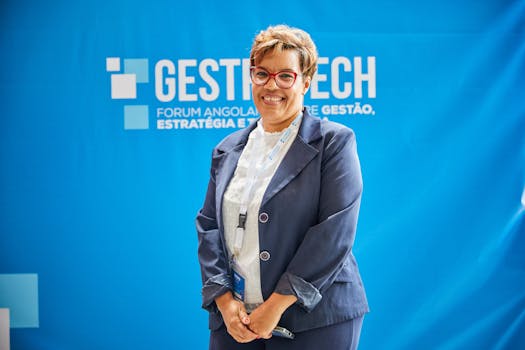Tech and Innovation Hub
How Blockchain in Gaming and Apps Is Reshaping Play and Digital Life
Discover how blockchain in gaming and apps lets you truly own in-game rewards, trade assets, and gain more control over digital experiences and security. Start exploring today.
Anúncios
Think back to the first time you traded a baseball card with a friend at recess. Now, swap that memory for digital swords, rare skins, or characters you truly own—because blockchain in gaming and apps is rewriting the rules.
Games and mobile apps are morphing from isolated playgrounds into interconnected economies. People try a new game and realize they can bring their favorite gear to another, or sell it outright, and that's more than a technical leap—it's a cultural one.
Exploring this shift opens doors to richer, player-driven stories and practical changes for everyone engaging with digital worlds. Dig in to uncover how blockchain is creating these changes—and how you can use them yourself.
Enabling True Digital Ownership: The Building Blocks of Player Freedom
Players want to keep what they earn—and carry it beyond a single app. Blockchain in gaming and apps means when you win or buy a rare item, you genuinely own it.
Once ownership is possible, gamers begin to experiment: they trade, collect, or even lend their digital assets. This changes the way players interact with each other and with in-game marketplaces.
Distinguishing Real Ownership from Access Rights
Imagine a scenario: A player earns a mythical mount in an adventure game. Instead of access that evaporates if the app closes, blockchain secures the asset in your wallet.
Consider two games releasing identical cosmetic items. Using blockchain, assets are visibly proofed as authentic, with their full history open on the ledger—no more wondering if you've got the real deal.
This transparency prompts developers to adopt fair trade rules. Next-gen marketplaces will let you verify provenance, so you know exactly what you're buying or selling.
Allowing Peer-to-Peer Marketplaces to Flourish
Once players believe their item can't be erased by server resets or new patches, they treat in-game assets like treasured baseball cards. This peer-level trust encourages robust trading.
Jake, an indie gamer, says, “Having my shield in my wallet is like keeping it in a safe at home—I set the terms, not the app.” That sense of security fosters more creative trades.
To start, look for games that display public transaction histories, or let you move items between games or apps. If the tools aren't obvious, ask customer support specifically about asset portability.
| Old Model | Blockchain-Driven | What Players Experience | Action Step |
|---|---|---|---|
| In-game items reset if you uninstall | Persistent, wallet-based ownership | Items accessible from multiple apps | Secure your digital wallet credentials |
| Developer closes game, items lost | Item exists outside any one game | Resale or reuse after a shutdown | Check interoperability before investing |
| No way to verify rarity or authenticity | Transparent, traceable item histories | Trust in trades and collections | Review blockchain provenance before trading |
| Central servers set all trade rules | Peer-to-peer deals with smart contracts | Bargain directly, customize deals | Brush up on smart contract basics |
| Banned accounts lose purchased assets | Wallet stays with the player | Long-term asset stability | Store backup wallet keys safely |
Designing Play-To-Earn Loops That Actually Reward Players
Effective blockchain in gaming and apps lets users see real returns: rewards flow straight to their accounts without delays, and what you earn stays yours, even after you leave the game.
Developers are experimenting with systems where scoring big or contributing to the community can put branded tokens directly into your wallet. These are more than badges—they're tradeable, sellable, and even usable across different games.
Structuring Achievements as Smart Contracts
Every time you score a rare badge, a smart contract triggers, dropping your digital prize into your control. This happens instantly—no waiting for developer approval.
- Track every in-game achievement with a contract; you'll never miss a reward, because blockchain records every win step-by-step.
- Shift prize pools to peer-managed tokens; you get a say in pool rules, so favorite game modes get properly rewarded.
- Install a wallet app that supports tokenized achievements; you claim prizes on the go, with easy navigation.
- Compare value of tokens in real time; decide quickly if you should trade, collect, or cash out after an event.
- Sync achievements across multiple games; display your status in one place, and leverage social bragging rights with a single click.
Follow these steps—register a wallet, confirm it supports your games, then play to earn tokens you truly possess.
Creating Eco-Friendly Reward Systems
Switching from energy-intensive blockchains to eco-friendly ones helps reduce the impact. Look for apps highlighted 'proof-of-stake' protocols—they use less energy, and rewards won't harm the planet.
- Pick games built on efficient networks, not just hype, so your actions support sustainability.
- Read developer updates for carbon-offset initiatives—ask specifically where your microtransactions are validated.
- Use in-game tools that highlight your energy savings for each move—it fosters mindful play.
- Support projects that publish energy audits; transparency counts more than marketing promises.
- Convert rewards to donations for verified green projects—make your play benefit real-world causes, too.
Choose eco-friendly blockchain options that fit your values to keep play sustainable and meaningful.
Building Frictionless Cross-App Experiences with Interoperable Assets
Blockchain in gaming and apps introduces a game changer: players take assets from one app and use them in another, without technical headaches or forced workarounds.
Concretely, this means your favorite character skin from an RPG could show up in a puzzle app, or you might transfer in-game currency from a fighting game to a social platform for extra perks.
Customizing Avatars Across Multiple Digital Worlds
Alex scans a QR code in a new game and instantly unlocks their outfit from a previous adventure. With interoperability, outfits and props become a digital extension of personal style, not limited by a single app.
By using blockchain-supported avatars, you log into new games and your look stays the same—no painstaking setup each time. Try this with compatible games: import your wallet, and watch your unique items reappear instantly.
Emulate this setup by exporting your avatar's metadata via the profile settings, then connecting with another game that recognizes the blockchain standard.
Sharing Currencies for Connected In-App Purchases
When a single wallet holds your tokens, purchases gain new flexibility. For instance, if you earn points in a trivia app, you might redeem them in a cooking app for downloadable recipes.
This connected economy means you decide when to spend, save, or transfer value between favorite apps. Set up notifications for cross-app purchases, and test with small transfers between trusted apps to get a feel for the flow.
Learning this system is like working out how public transit passes function in different cities: get familiar with a few main networks, and you'll travel anywhere with ease.
Clarifying Security and Privacy in Blockchain-Backed Games and Apps
Checking blockchain in gaming and apps for security allows users to control how they share and store data—and stay confident when trading or earning digital items.
Developers encrypt transactions so that users' private information isn't broadcast. When signing up, you approve permissions, and the system records transactions while protecting your personal details.
Handling Wallet Safety for Newcomers
First, download a wallet recommended by the game's FAQ—avoid links from unknown sources. Create a backup of your secret key in two physical places.
In practice, this means writing your seed phrase on paper, not just copying it to a notes app. Store it where only you and trusted adults can reach it.
When trading, check that the address is correct character-for-character, as blockchain transfers can't be reversed. Ask a friend to double-check if you're unsure—it never hurts to go slow on your first trade.
Securing Transaction Details Without Giving Up Convenience
Apps let you toggle between private and public transaction histories. Adjust default settings after installing; hide sensitive trades from other players but still access proof when needed.
Set up two-factor authentication within your wallet. When logging in from a new device, enter a temporary code sent to another device, ensuring no one else gets in.
Test your access recovery steps before you forget your password: log in from a different device using your backup passphrase, so you're confident in emergencies.
Enhancing Community Connections and Collaborative Play
With blockchain in gaming and apps, multiplayer interactions shift: collaboration is tracked transparently and communities gain direct say in how future features or stories unfold.
Developers post governance tokens to active players, who vote on weekly updates or new assets. This creates a participatory loop where each user's involvement measurably shapes the app's direction and culture.
Running Player-Led Event Funding Models
During a seasonal tournament, the top scorers receive event tokens that double as votes for the next event's theme or prize pool, decentralizing decisions.
Apply this rule: if you earn the item, you steer the next update. Connect your wallet, claim your event tokens by a set deadline, and cast your digital ballot using in-game prompts.
This approach lets passionate players feel like minority shareholders, not just consumers, with a true stake in evolving the digital experience.
Implementing Transparent Moderation and Reward Models
Games treat abuse reports like blockchain transactions: public logs ensure moderators can't overlook complaints, and repeat offenders have visible records—protecting community trust.
Report problems through verified channels; encourage creators to assign bounties for positive community behaviors, like helping new players or organizing safe competitions.
Bring this spirit to apps by suggesting user-led patrols with small, automatic token rewards for reviewing suspicious activity logs.
Forecasting Next Steps in Mainstream Blockchain Game and App Adoption
To use blockchain in gaming and apps successfully, be ready for small learning curves, but expect huge payoffs as these technologies go from early adopter perks to standard features.
Mainstream titles are beginning to add blockchain-driven features smoothly—first with unique collectibles, then with wallet support. Update your favorite games and look for prompts to link a wallet or transfer items between apps.
Identifying Clear Trends in Marketplace Integration
Many top apps now display a “wallet compatible” logo. Compare new releases and beta tests, and track which major updates emphasize cross-app rewards.
When evaluating new titles, check the update logs for terms like “DeFi,” “NFT,” or “token economy” for fast signals that blockchain mechanics are at play.
Reach out to active Discord or Reddit channels with example questions: “Can I transfer my bonus gems from PuzzleLite to TriviaPro?” Note the response and use it to guide purchases.
Overcoming Usability Hurdles for All Ages
Developers now design onboarding for first-timers: shorter tutorials, visual cues, and one-tap wallet setup steps make adoption practical for teens and seniors alike.
Set up demo accounts with kids or elders. Walk through basic trades and recovery steps together until they feel comfortable operating on their own. Repeat every few weeks to reinforce learning.
Share constructive feedback through in-app ratings to push for even easier interfaces—as seamless as joining a classic game or messaging app.
Rethinking Digital Boundaries: What You Can Try Today in Blockchain Games and Apps
Takeaway: blockchain in gaming and apps means your actions and rewards carry more weight and can travel with you—so every level earned or item bought actually builds your digital reputation.
This new system ties digital life and play closer to how you manage tangible collections or memberships. It's about carrying the value you earn into the next chapter seamlessly, wherever you choose to play or connect.
Jump in by choosing one app with wallet support, secure your credentials, and try moving an asset or reward to another platform—join the movement toward lasting, player-focused digital freedom.





